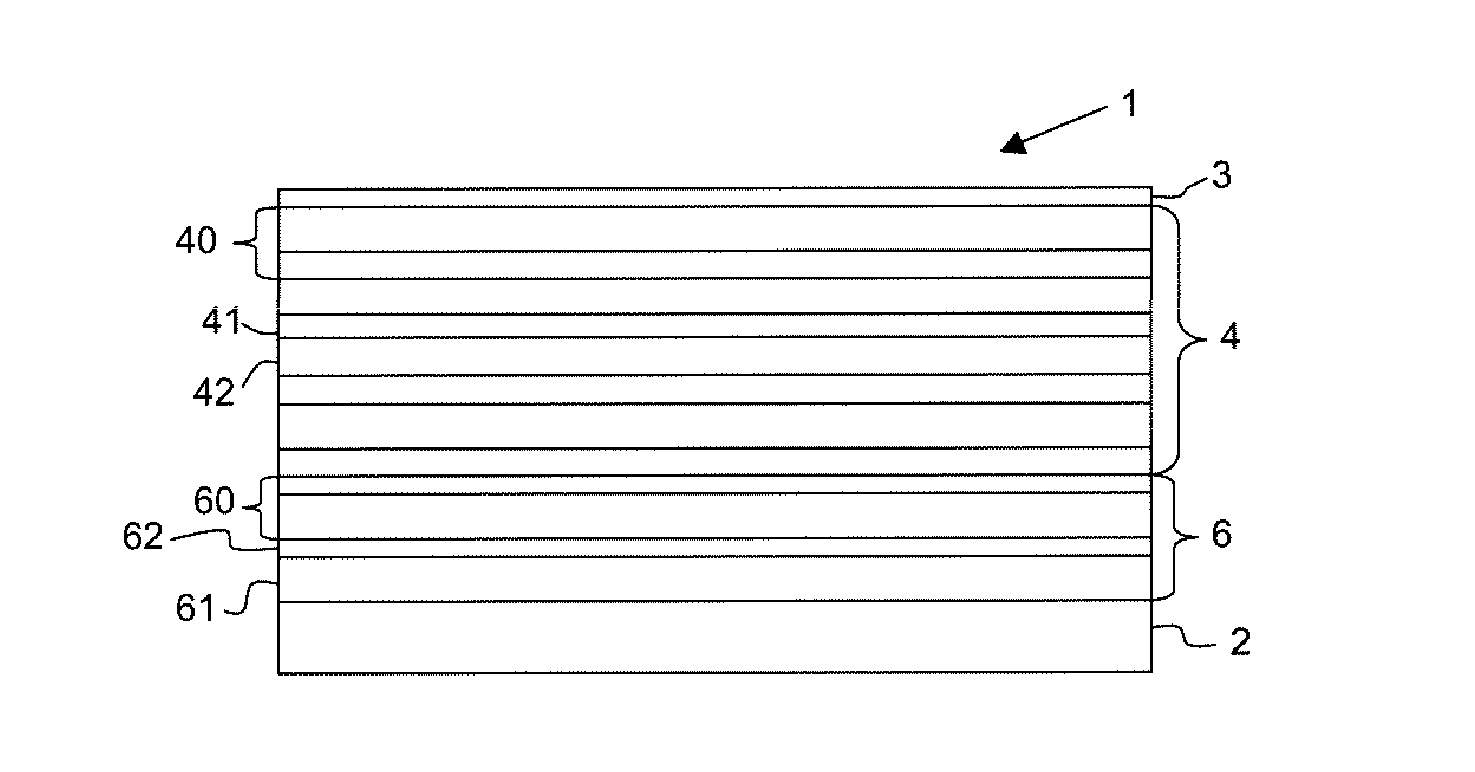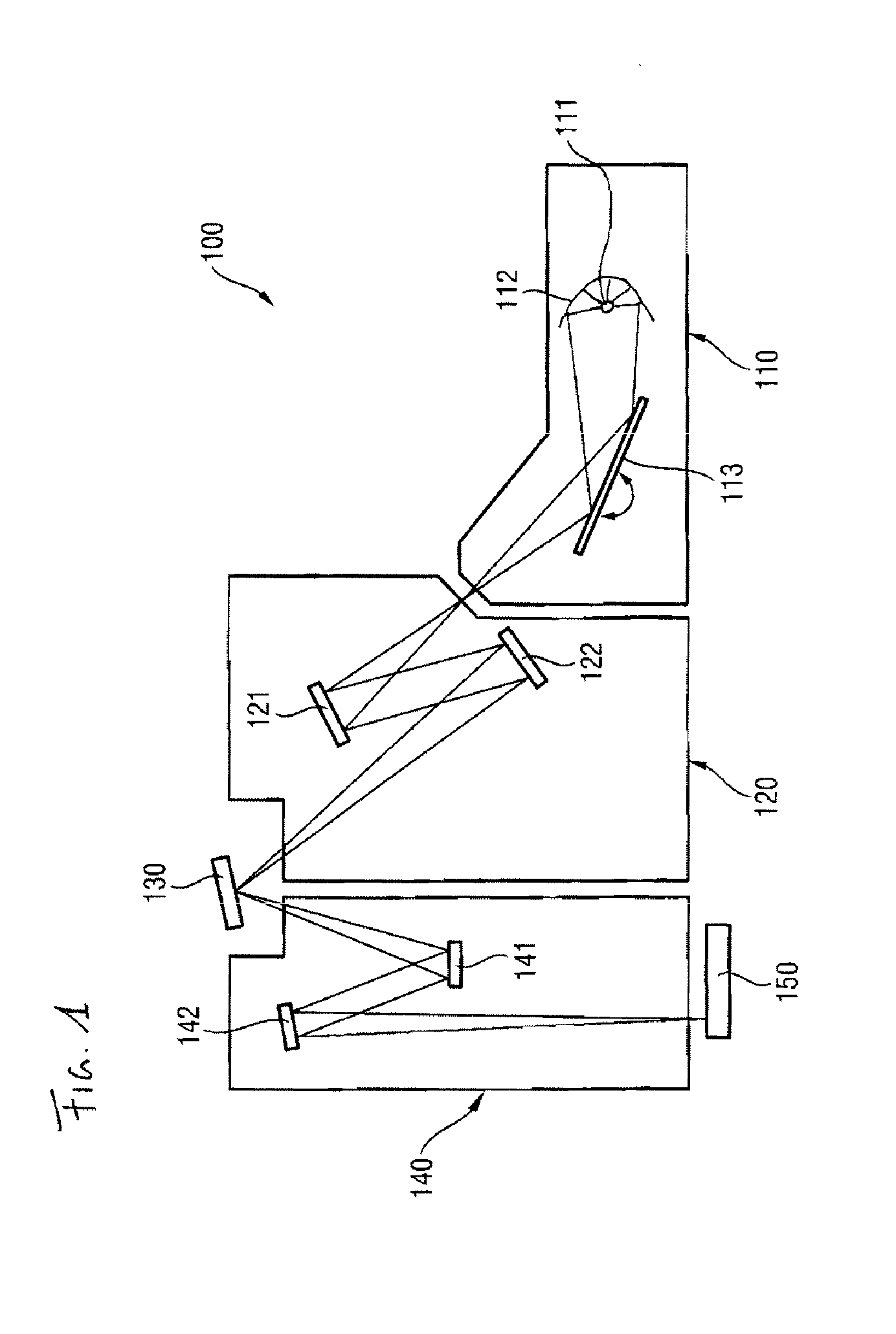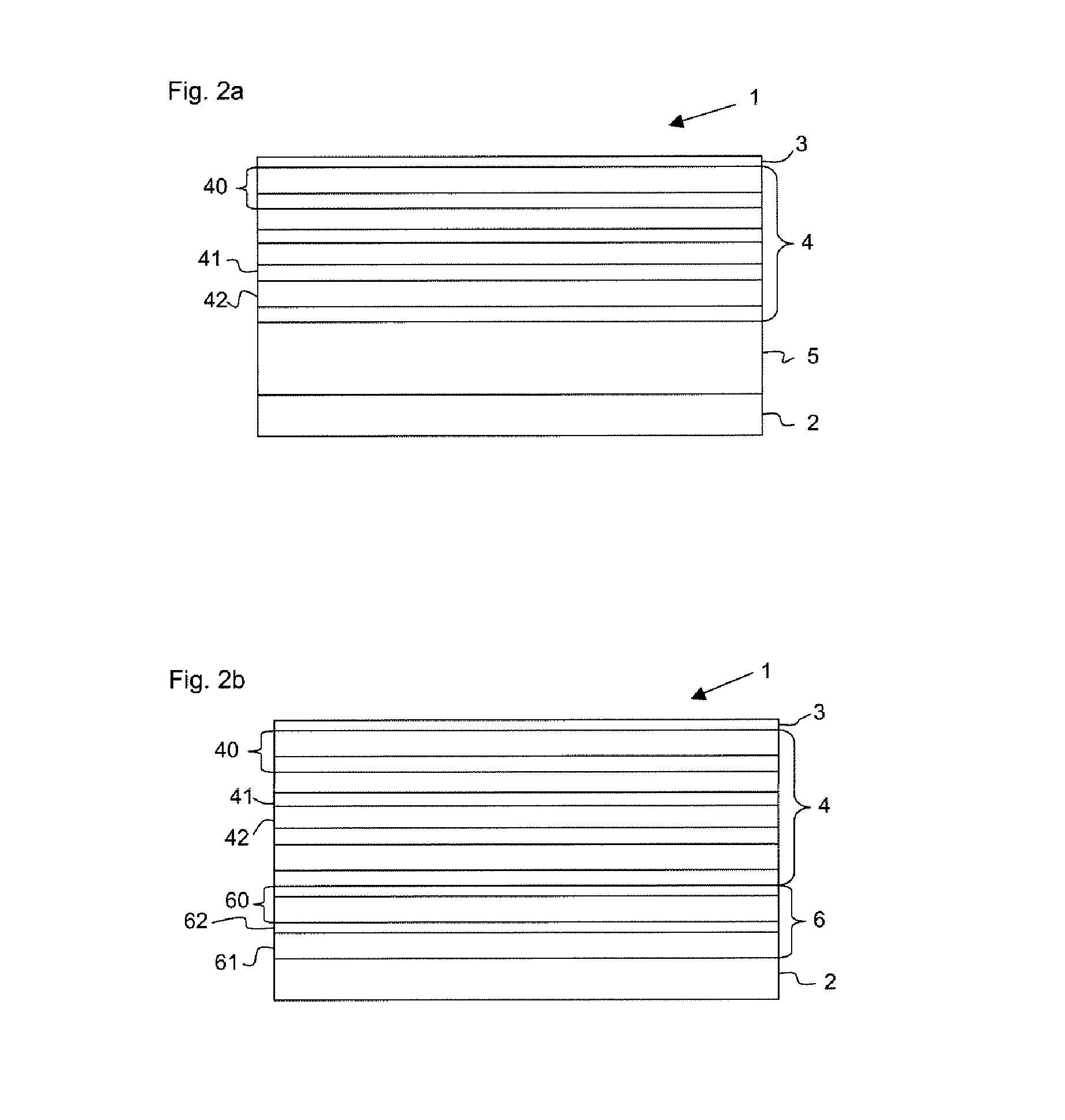Reflective optical element and method for production of such an optical element
a reflective optical element and optical imaging technology, applied in the field of reflective optical elements, can solve the problems of critical disturbance of optical imaging at the corresponding reflective optical element, increase in microroughness and hence surface roughness, and degradation of reflectivity and optical imaging of the reflective optical element, and achieve high reflectivity and reduce stress
- Summary
- Abstract
- Description
- Claims
- Application Information
AI Technical Summary
Benefits of technology
Problems solved by technology
Method used
Image
Examples
Embodiment Construction
[0027]FIG. 1 schematically illustrates an EUV lithography apparatus 100. Essential components are the beam shaping system 110, the illumination system 120, the photomask 130 and the projection system 140.
[0028]By way of example, a plasma source or else a synchrotron can serve as radiation source 111 for the beam shaping system 110. For the wavelength range of 5 nm to 12 nm, in particular, X-ray lasers (X-FEL) are also appropriate as radiation source. The emerging radiation is firstly concentrated in a collector mirror 112. In addition, the desired operating wavelength is filtered out with the aid of a monochromator 113 by varying the angle of incidence. In the wavelength range mentioned the collector mirror 112 and the monochromator 113 are usually embodied as reflective optical elements which, in order to achieve a reflection of the radiation of the operating wavelength, have a multilayer system composed of at least two alternating materials having different real parts of the refra...
PUM
| Property | Measurement | Unit |
|---|---|---|
| surface roughness | aaaaa | aaaaa |
| surface roughness | aaaaa | aaaaa |
| wavelength | aaaaa | aaaaa |
Abstract
Description
Claims
Application Information
 Login to View More
Login to View More - R&D
- Intellectual Property
- Life Sciences
- Materials
- Tech Scout
- Unparalleled Data Quality
- Higher Quality Content
- 60% Fewer Hallucinations
Browse by: Latest US Patents, China's latest patents, Technical Efficacy Thesaurus, Application Domain, Technology Topic, Popular Technical Reports.
© 2025 PatSnap. All rights reserved.Legal|Privacy policy|Modern Slavery Act Transparency Statement|Sitemap|About US| Contact US: help@patsnap.com



